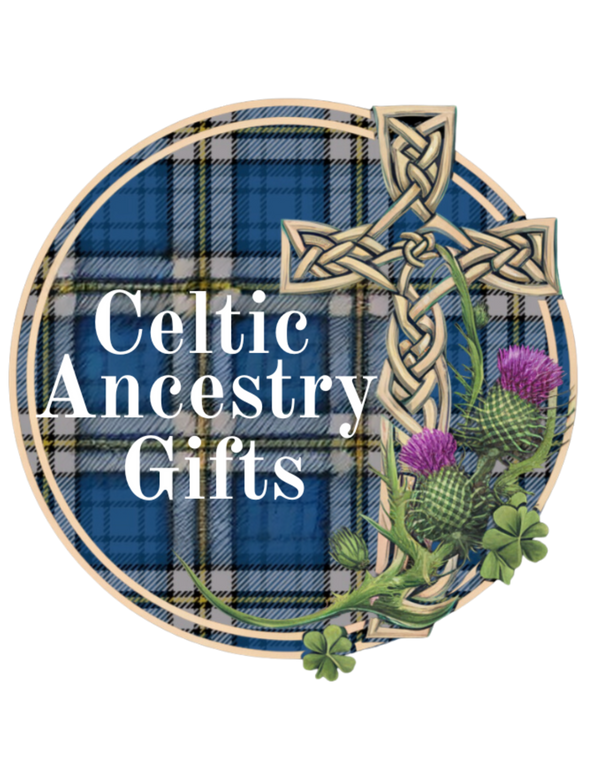
A Comprehensive History of Clan Fleming: From Norman Origins to Modern Legacy
Share
A Comprehensive History of Clan Fleming: From Norman Origins to Modern Legacy
The history of Clan Fleming is a rich and complex tapestry woven into the very fabric of Scottish history. Their story, spanning centuries, reflects the dramatic political, social, and cultural shifts that shaped Scotland, from its medieval beginnings to its modern identity. This exploration delves deep into the clan's origins, key figures, significant historical events, and its enduring impact, offering a detailed and nuanced understanding of their remarkable journey.
Norman Origins and the Scottish Diaspora: Tracing the Fleming Roots
The Fleming surname originates in Flanders, a region encompassing parts of modern-day Belgium and northern France. The precise timing and circumstances surrounding the Flemings' migration to Scotland remain a topic of ongoing scholarly debate. However, prevailing historical consensus suggests that the initial influx occurred primarily between the 12th and 13th centuries, coinciding with various waves of Norman and post-Norman settlements that significantly reshaped the social structure of Scotland. These early Flemish immigrants often possessed specialized skills, contributing to a variety of trades and professions. Their expertise proved advantageous, paving the way for their integration and subsequent rise within the Scottish power structures.
Early Flemings established themselves strategically, acquiring lands and forging crucial alliances that laid the groundwork for the clan's future growth and prominence. Their successful assimilation demonstrates the adaptability and resourcefulness of these early settlers, contributing to their lasting impact on Scottish society. Detailed records of these early migrations are patchy; however, continuing research is revealing new insights into the early lives and contributions of these pioneering Flemings, adding to the understanding of their initial settlement and establishment in Scotland.
Key Figures: Pillars of the Clan's Success
Throughout their history, Clan Fleming has produced many influential figures who significantly impacted both the clan's trajectory and the course of Scottish history. While comprehensive records remain elusive for certain periods, prominent individuals whose actions decisively shaped the clan's destiny include:
- Sir Malcolm Fleming (14th Century): A significant landholder and influential figure during a time of intense political volatility in Scotland, Sir Malcolm's unwavering loyalty to the Scottish crown secured him significant land grants and further elevated the clan's standing. His strategic alliances and political acumen helped solidify the clan's position amidst the complex power struggles of the era. Ongoing research continues to uncover the details of his life and contributions, enhancing our understanding of his impact on both the clan and Scottish politics.
- John Fleming of Biggar (15th Century): A prominent figure who held substantial political influence during a period of marked instability in Scotland. While extant historical documentation remains limited, available evidence suggests his crucial role in shaping the political landscape and the clan's active participation in major events of the period. His life and accomplishments are the subject of ongoing investigation, which promises to offer richer insights into his life and his contribution to the Clan Fleming.
- The Fleming Earls of Wigtown: This branch of the family held a significant title and estate in southwest Scotland, and their history is rich with political and social engagements, including participation in various conflicts and notable contributions to regional governance. Their story reveals the complex interplay of family ambition and regional politics in Scotland. Further historical research into the archives related to the Wigtown estate will enrich our knowledge of their participation in Scottish history.
- Other Notable Flemings: Beyond the more widely documented figures, countless other members of the Fleming family held positions of considerable importance within the Church, the military, and the administration of Scotland. Their collective contributions are crucial to understanding the clan's broader influence and impact on the nation's development. Further research into local and regional archives promises to shed light on the contributions of these lesser-known but equally significant members of the Clan.
Navigating the Tides of Scottish History: Clan Fleming's Active Role
The history of Clan Fleming is intrinsically intertwined with the major events that shaped the Scottish nation. Their active participation in crucial conflicts and social changes underscores their presence and influence throughout Scottish history:
- The Wars of Scottish Independence: Clan Fleming played a significant part in this defining struggle against English dominance. Their unwavering loyalty to the Scottish crown played a critical role in securing the nation's independence, solidifying their reputation as staunch supporters of the Scottish monarchs. Their contributions to the military campaigns and their strategic alliances were integral to the Scottish victories.
- The Border Conflicts: Located primarily in the border regions, Clan Fleming found themselves frequently involved in the often brutal conflicts with England. Their military prowess and strategic insight were critical in defending the Scottish realm from English incursions. Their intimate understanding of the borderlands provided an important advantage in defending against attacks and in conducting raids and forays into English territory.
- Internal Scottish Conflicts and Power Dynamics: Like many powerful Scottish clans, Clan Fleming was involved in numerous internal conflicts, reflecting the volatile power dynamics of the time. These struggles highlight the clan's ambition and the complex interplay of loyalties and rivalries within the broader Scottish social and political landscape. Their involvement in these conflicts shows the clan's adaptability in the face of changing alliances and internal rivalries.
- The Scottish Reformation and Beyond: The religious and social transformations brought about by the Reformation had a profound impact on Clan Fleming, as it did on all aspects of Scottish society. Adapting to the new religious and political landscape required strategic maneuvering and alliances to maintain their influence and standing in the face of significant social and political change. Their response to the Reformation reflects the clan's resilience and ability to adapt to changing societal circumstances.
A Lasting Legacy: The Enduring Influence of Clan Fleming
The legacy of Clan Fleming extends far beyond the historical conflicts and political maneuvering of previous centuries. The family name remains prominently associated with numerous geographical locations in Scotland, a lasting testament to their historical influence. Moreover, a vibrant sense of clan identity persists among their descendants today, who actively engage in clan gatherings, genealogical research, and historical preservation efforts. These modern clan societies play a crucial role in sustaining the memory and heritage of the clan, forging a compelling link between the past and present.
The ongoing commitment to preserving their history provides a powerful connection to their ancestors, ensuring the continuity of their story for future generations. The clan's historical impact extends beyond Scotland's borders, as descendants now reside in countries around the world, carrying with them the legacy and traditions of their forebears. The worldwide presence of Fleming descendants shows the far-reaching influence of the clan and underscores the enduring strength of their historical bonds.
Further Research and Future Explorations: Unveiling the Untold Stories
This exploration serves as a foundation for a deeper understanding of the rich and complex history of Clan Fleming. Much remains to be discovered and interpreted through further research. Future avenues of exploration include:
- Detailed Archival Research: Examining original historical documents held in national and regional archives in Scotland and beyond can uncover new details about the clan's activities and contributions.
- Genealogical Investigations: Comprehensive genealogical research can illuminate the family relationships and connections within the clan, enriching our knowledge of individual lives and the broader familial networks.
- Archaeological Excavations: Archaeological investigations of sites associated with Clan Fleming may reveal artifacts and evidence that can provide tangible connections to their past, offering fresh perspectives on their daily lives and societal practices.
- Oral History: Gathering and preserving oral histories from descendants can provide invaluable perspectives, filling gaps in documented information and offering personal narratives that enrich the historical record.
- Comparative Studies: Comparing the experiences and trajectory of Clan Fleming with other prominent Scottish clans can offer insightful comparisons, facilitating a broader understanding of the clan system and its role in Scottish history.
The study of Clan Fleming's history is more than an academic exercise; it's a journey into the heart of Scotland's past. By exploring the lives and achievements of this remarkable clan, we gain a deeper understanding of the nation's evolution and the enduring influence of those who helped shape its destiny. Future research will undoubtedly uncover further details, enriching our knowledge and appreciation for this influential and enduring clan.

